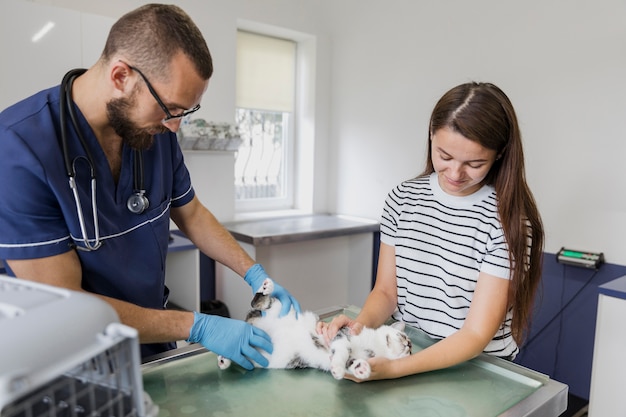Cold Weather Pet Safety: Fall and Early Snow in Colorado
As the leaves turn and the crisp air of October settles in, pet owners in Aurora know that Colorado's fall can bring sudden temperature drops and even early flurries of snow. These seasonal changes create unique challenges for keeping your dog or cat comfortable and safe. At Pets R Us Aurora, located at 10695 E Mississippi Ave, Aurora, CO 80012, our veterinary team is dedicated to helping you navigate cold weather pet safety with practical guidance and compassionate care.
This blog will walk you through the warning signs that your pet may be feeling the chill, why cold weather can be risky for both dogs and cats, and the steps you can take to support healthy routines as winter approaches. We will also help you determine when it is time to call your veterinarian for expert advice or care. Whether you are seeking Aurora pet care tips for frosty mornings or want to know what to do if your pet shows signs of frostbite, you will find helpful answers here. If you are searching for a "vet near me" who understands Colorado's unpredictable weather, our team at Pets R Us Aurora is here to guide you every step of the way. For pet owners looking to stay ahead of seasonal threats, our wellness and vaccination services are designed to protect your furry friend year-round.
Recognizing the Signs: How Cold Weather Affects Aurora Pets
As soon as the temperature starts to dip, pets may show subtle or obvious signs that they are uncomfortable or at risk. Identifying these cues early can prevent more serious health problems. Typical symptoms that your pet is struggling with the cold include shivering, reluctance to go outside, or seeking warm spots in your home. You might notice your dog holding up a paw during a walk, which can indicate discomfort from cold surfaces or even early frostbite. Cats may hide more frequently or refuse to leave their cozy resting spots.
Other warning signs of cold exposure involve lethargy, slower movements, and in severe cases, confusion or weakness. Long-haired breeds often tolerate chilly weather better than short-haired or small-breed dogs, but even pets with thick coats can become chilled if they get wet or are exposed to wind for extended periods. Puppies, senior pets, and those with chronic health conditions are especially vulnerable to the effects of cold weather.
Pet owners in Aurora and surrounding communities should pay close attention to behavioral changes as the seasons shift. If your pet is acting differently or seems unusually sensitive to the outdoors, consider discussing it during a routine wellness examination or your next visit to a quality veterinary services provider in Aurora.
Understanding the Risks: Why Fall and Early Snow Bring New Challenges
Colorado’s unpredictable autumn weather means pets can experience a wide range of conditions in a single week. While cool temperatures might seem harmless, sudden cold snaps, icy winds, and early snowfalls can quickly increase your pet’s risk of hypothermia and frostbite. Hypothermia develops when a pet’s body temperature drops too low, usually because of prolonged exposure to the cold. Signs of hypothermia include uncontrollable shivering, pale or blue gums, weakness, and even collapse if left untreated.
Frostbite is another concern, especially during those first surprise snowfalls. Frostbite occurs when extreme cold damages the skin and tissues, most commonly affecting the ears, tail, and paw pads. Symptoms include pale, gray, or bluish skin, swelling, blisters, and pain when touched. Once the tissue warms up, it may turn red and become painful, sometimes leading to long-term damage.
Pets that spend a lot of time outdoors, such as working dogs or adventurous cats, face a higher risk for these conditions. Even brief exposure can be dangerous if your pet is wet, has a thin coat, or is dealing with health challenges that affect circulation. Additionally, as nighttime temperatures drop, risks such as ice accumulation, hidden hazards under early snow, and accidental exposure to antifreeze or de-icing chemicals increase. These substances are highly toxic to pets and can be found in driveways, sidewalks, and garages throughout Aurora.
Understanding these risks helps pet owners make informed decisions about outdoor activities, shelter, and preventive care as fall turns into winter.
Professional Care and Support: How Your Aurora Veterinarian Can Help
Seeking professional guidance is crucial for maintaining your pet’s health throughout the colder months. At Pets R Us Aurora, our veterinary professionals offer a comprehensive range of services tailored to the challenges of cold weather, from wellness exams to advanced diagnostics and emergency care. If your pet has a chronic health condition like arthritis or heart disease, cold weather can often worsen symptoms. Our team can recommend adjustments to your pet’s care plan, such as medication reviews or exercise modifications, to keep them comfortable.
If your pet shows any signs of hypothermia or frostbite, immediate veterinary attention is essential. Treatment approaches involve gradually warming your pet in a controlled environment, providing supportive care, and addressing any complications such as tissue damage or infection. In severe cases, more advanced therapies may be needed to manage pain and support recovery. It is important to avoid applying direct heat, such as heating pads or hot water bottles, as these can cause burns or further injury.
Routine checkups are especially valuable as the seasons change. During a wellness examination, our veterinarians can assess your pet’s overall health, identify risk factors, and help you develop a personalized cold weather care plan. We may recommend vaccines to protect against seasonal illnesses, parasite prevention strategies, and dietary adjustments for pets with changing activity levels. For dogs and cats in Aurora, vaccinations play a critical role in preventing diseases that may become more prevalent during colder months, so be sure to ask about our vaccination services during your visit.
Keeping Your Pet Safe: Prevention and Home Care for Aurora’s Fall and Winter
While professional care is vital, there are many steps pet owners can take at home to reduce cold weather risks. Limiting outdoor time during particularly cold or wet days is a simple yet effective strategy. If your dog needs exercise, try shorter, more frequent walks and always dry your pet thoroughly after returning indoors. For pets with thin coats or those more sensitive to the cold, a well-fitting sweater or jacket can provide extra warmth without restricting movement.
Monitoring your pet’s paws is important, as salt, ice, and snow can cause irritation or injury. After walks, wipe your pet’s feet with a damp cloth to remove de-icing chemicals and check for cracks or redness. Providing a warm, draft-free sleeping area inside your home ensures your pet can rest comfortably. Avoid placing beds directly on cold floors or near doors that frequently open to the outside.
Nutrition and hydration play key roles in supporting your pet’s health during fall and winter. Some pets may need dietary adjustments if their activity level changes, while others may require more calories to maintain body heat. Fresh water should always be available, as pets can become dehydrated even in cold weather. For cats, keeping litter boxes indoors and away from cold entryways encourages regular use and prevents accidents.
Regular wellness checkups are a proactive way to address seasonal concerns, especially if your pet has underlying health issues. Scheduling an appointment with your veterinarian in Aurora ensures you receive personalized advice and support. If you are ever unsure about your pet’s well-being during colder months, do not hesitate to reach out to a "veterinary services near me" provider for guidance.
When to Call Your Veterinarian: Recognizing Emergencies and Taking Action
Knowing when to seek professional help can make all the difference during fall and early snow. You should contact your veterinarian if your pet is shivering uncontrollably, acting lethargic, or showing any signs of frostbite such as pale or blistered skin. Immediate care is also necessary if your pet has difficulty breathing, collapses, or seems confused after cold exposure.
For accidental ingestion of antifreeze or de-icing products, do not wait for symptoms to appear; call your veterinarian or animal poison control immediately, as these substances can be deadly even in small amounts. Likewise, if your pet has fallen through ice or been exposed to freezing water, urgent evaluation is needed to prevent complications.
As Aurora’s weather can change rapidly, it is helpful to have your veterinarian’s contact information readily available. Pets R Us Aurora is committed to providing quality veterinary services in Aurora and surrounding communities. Our team is here to support you with compassionate, expert care and can help you decide when an in-person visit is necessary. Even if you are searching for the best veterinarian near me for peace of mind, our team is just a phone call away for advice or to schedule an appointment.
For ongoing support and prevention, consider discussing your pet’s routine wellness and vaccination needs with our veterinarians. Our vaccination services and wellness programs are tailored to address seasonal risks and to help your pet thrive, no matter the weather.
Conclusion: Stay Ahead of the Cold with Trusted Aurora Pet Care
Fall and early snow in Colorado bring both beauty and new responsibilities for pet owners. By staying alert to the signs of cold weather stress, understanding the risks, and taking preventive measures, you can help your dog or cat stay healthy and comfortable as the temperatures drop. Pets R Us Aurora is proud to serve the Aurora community as a trusted resource for cold weather pet safety and year-round health.
If you have questions about your pet’s winter care, want to schedule a wellness exam, or need advice on specific concerns, we invite you to contact our veterinary professionals. Our team is dedicated to providing the highest quality vet near me experience, with comprehensive Aurora pet care tips and services that put your pet’s wellbeing first. You can reach us at (720) 802-2353 or visit us at 10695 E Mississippi Ave, Aurora, CO 80012 to schedule an appointment and discuss your pet’s unique needs.
As you prepare for the colder months ahead, remember that proactive veterinary services in Aurora are your best defense against the unexpected. Whether you need routine wellness care, advice on vaccination services, or emergency support, our compassionate team at Pets R Us Aurora is here to help your pets enjoy every season in comfort and health.
This blog is intended for informational purposes only and does not replace professional veterinary advice. If you have concerns about your pet’s health, please consult your veterinarian promptly. For additional information on cold weather pet safety, visit the American Veterinary Medical Association’s cold weather pet safety page ([AVMA resource link]).



















